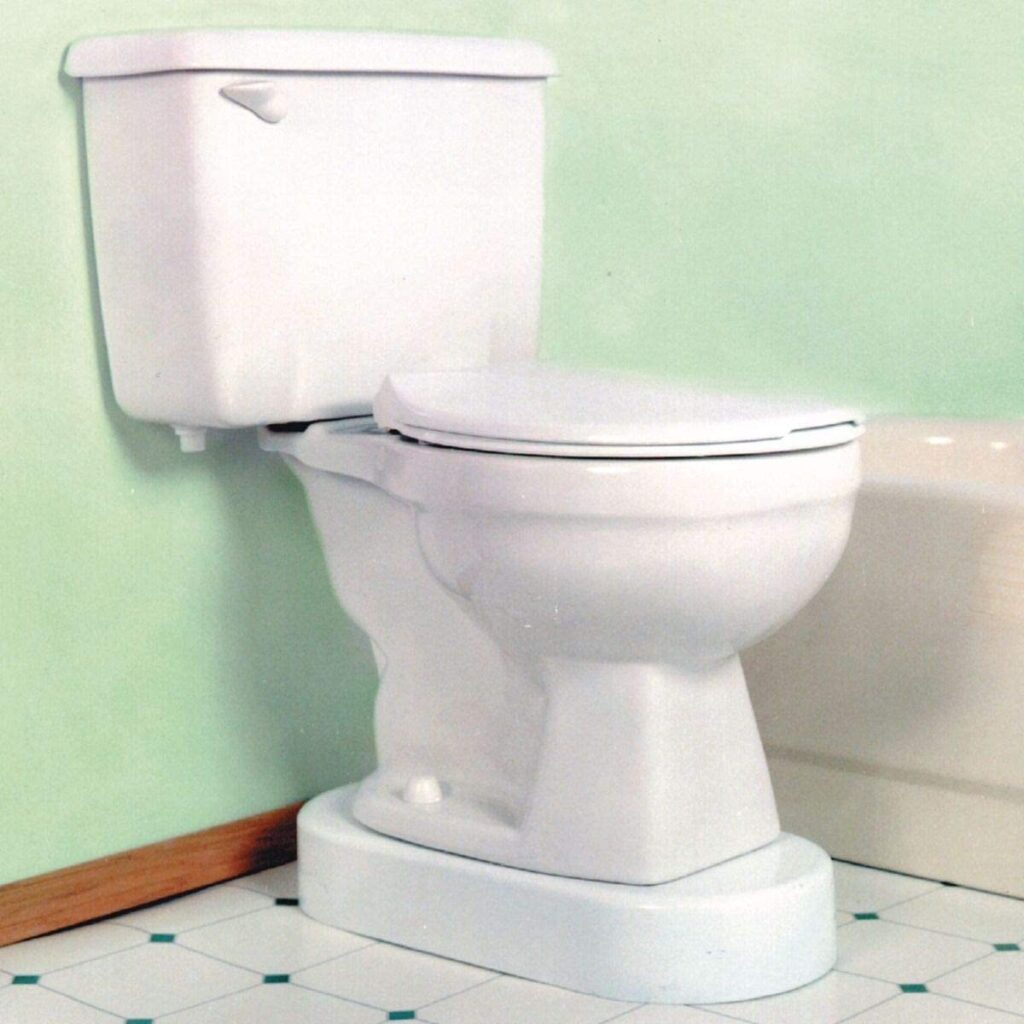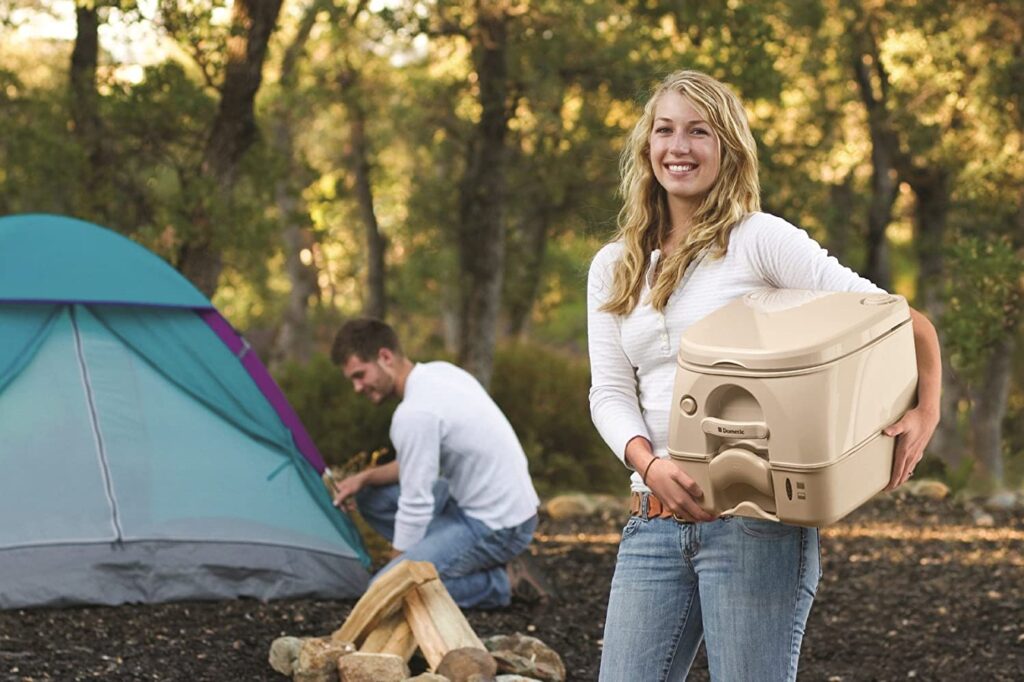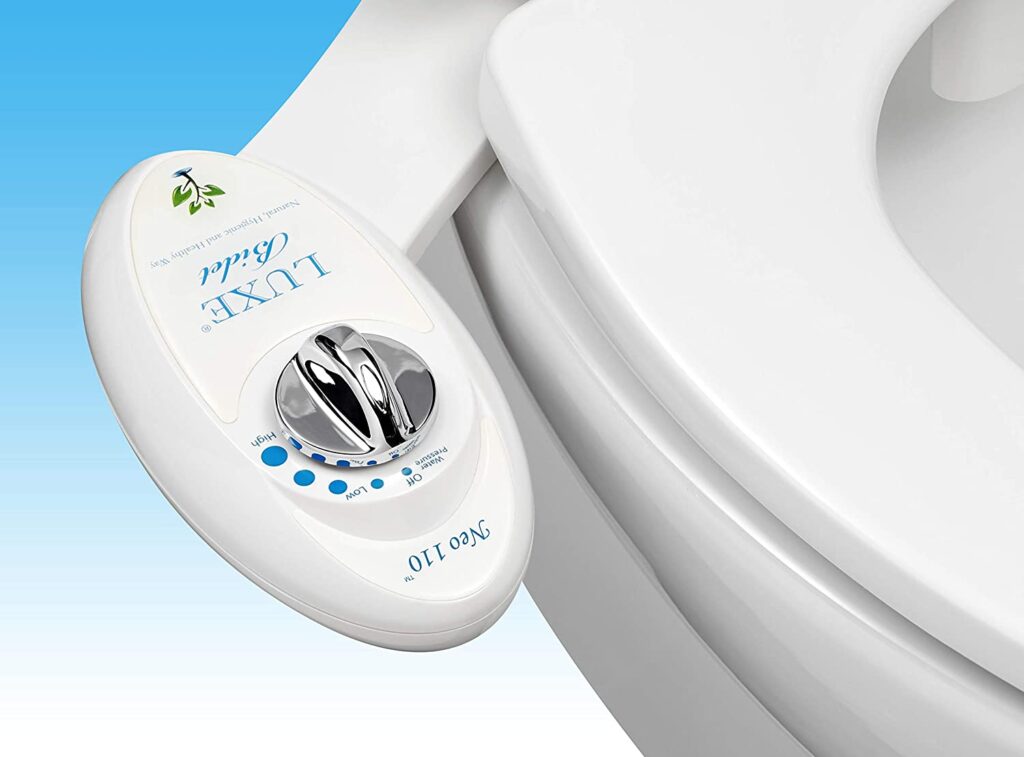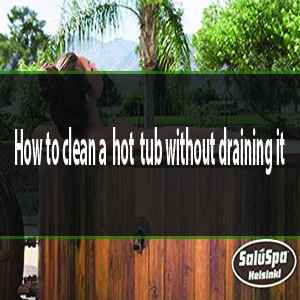Has your shower head started spraying water weakly or unevenly? If so, you’re probably dealing with hard water buildup. Hard water is common in places where the water has high levels of minerals like calcium and magnesium [1] . While these minerals are fine to drink [2], they can cause problems when they settle in your plumbing, including your shower head. The good news? Cleaning your shower head is easy and only requires a few simple supplies.
In this guide, we’ll show you how to clean a shower head that’s been affected by hard water and give you a few tips to keep it from happening again.
Table of Contents
1. Why Is Your Shower Head Clogged?
1.1 What is Hard Water?
Hard water is water that has a lot of minerals, especially calcium and magnesium [3]. These minerals come from the rocks and soil the water passes through. While hard water is safe to drink, it can cause problems for your plumbing over time. When the water flows through your pipes, the minerals settle on your shower head and other fixtures, causing limescale buildup. This buildup can block the nozzles and lower water pressure.
1.2 What Problems Does Hard Water Cause?
Here are some common issues caused by hard water buildup:
- Lower water pressure: Blockages in the shower head can restrict water flow, so you’ll feel weak water pressure [4].
- Uneven water spray: When limescale builds up, it can cause the water to spray out in different directions instead of evenly [5].
- Clogged nozzles: The mineral buildup can block some or all of the nozzles, making it harder for water to flow [6].
These issues can make your shower less enjoyable, and if you don’t clean it, they can cause damage to your plumbing.
2. How to Tell if Your Shower Head Needs Cleaning
You’ll know it’s time to clean your shower head if you notice these signs:
- Weak or uneven water flow: If the water pressure feels low or the water sprays in strange patterns.
- White or chalky residue: This is a sign that minerals are building up on the nozzles.
- Water spraying in odd directions: If your shower head is spraying water in unusual directions, it’s probably clogged.
- Clogged or dry nozzles: Some nozzles may get blocked, and no water will come out of them.
- Long time since cleaning: If you haven’t cleaned your shower head in over six months, it’s time for a cleaning.
If you notice any of these issues, it’s a good idea to clean your shower head soon.
3. What You’ll Need to Clean Your Shower Head
Before you start cleaning, gather these common items—you probably already have them around the house:
- White vinegar: This is the best way to break down the minerals and clean your shower head [7].
- Plastic bag: A quart-sized plastic bag works well for most shower heads.
- Rubber band or zip tie: To keep the bag secured around the shower head.
- Old toothbrush: To scrub away the mineral deposits once they loosen up.
- Paperclip or needle: For clearing out any blocked nozzles.
- Wrench (optional): If you want to remove the shower head for a deeper clean.
- Towel or rag: To protect the shower head when removing it.
If the buildup is really stubborn, you might want to use a commercial descaler, which you can find on Amazon. These products work a little faster but are optional.
4. How to Clean Your Shower Head: Step-by-Step
There are two main ways to clean your shower head. You can either leave it attached to the pipe or take it off entirely. Both methods work well, so choose the one that feels easiest for you.
Method 1: Clean Without Removing the Shower Head
This is the easiest method and works for most cases.
- Fill a Plastic Bag with Vinegar
Pour white vinegar into the plastic bag, filling it about halfway. - Secure the Bag Around the Shower Head
Put the bag over the shower head so the nozzles are submerged in the vinegar. Use a rubber band or zip tie to hold the bag in place. - Let It Soak
Let the vinegar sit for 6-12 hours. The vinegar will break down the mineral buildup [8]. - Remove the Bag and Scrub
After soaking, take the bag off and use an old toothbrush to scrub the nozzles. This will help remove any remaining buildup. - Rinse and Run Water
Turn on the hot water to flush out any leftover vinegar and debris. Your water pressure should be stronger and more even now.
Method 2: Clean After Removing the Shower Head
If your shower head has a lot of mineral buildup, this method will give it a deeper clean.
- Remove the Shower Head
Use a wrench to unscrew the shower head from the pipe. Wrap a towel around the head to avoid damaging the finish. - Soak the Shower Head in Vinegar
Place the shower head in a bowl of white vinegar and let it soak for 12-24 hours. - Clean the Nozzles
After soaking, use a toothbrush or a paperclip to clear out any blocked nozzles. You can also use the paperclip to poke through small holes. - Rinse and Reattach
Rinse the shower head well with water, screw it back onto the pipe, and turn on the hot water to clear any remaining debris.
When to Use a Commercial Descaler
If vinegar isn’t cutting it, you can try a commercial descaler. These are specially made to remove tough mineral deposits. Some popular products are Lime-A-Way and CLR Calcium, Lime & Rust Remover .
How Often Should You Clean Your Shower Head?
If you live in an area with hard water, it’s a good idea to clean your shower head every 1-2 months. Cleaning it regularly will keep your water pressure strong and extend the life of your shower head.
You might also want to install a water softener to prevent mineral buildup. These systems remove calcium and magnesium from your water, so they don’t clog your shower head [9].
Preventing Hard Water Buildup: Long-Term Solutions
If you want to avoid the hassle of cleaning your shower head frequently, you can take steps to prevent hard water buildup in the first place. Here are some practical solutions that can help:
-
Install a Water Softener:
A water softener is a long-term solution that removes the minerals in hard water, like calcium and magnesium. It works by exchanging these minerals with sodium or potassium, leaving your water softer. This will stop minerals from building up on your pipes, shower heads, and other fixtures. It’s especially useful if you live in an area with very hard water[9]. -
Use a Filtered Shower Head:
If you don’t want to install a full water softening system, a filtered shower head is a good alternative. These shower heads can reduce the minerals in the water before they have a chance to settle on your fixtures. Many shower head filters also remove chlorine and other impurities, improving water quality and helping to keep your skin and hair feeling healthier. -
Regular Maintenance:
Even with a water softener or filtered shower head, it’s still a good idea to perform some regular maintenance. For example, soaking your shower head in vinegar once a month can help keep it clean and prevent any mineral buildup. This quick task takes just a few minutes and can save you time and effort in the long run. -
Install a Whole-House Filter:
A whole-house filtration system filters all the water coming into your home, not just the water from your shower. These systems can be a bit more expensive, but they are highly effective at reducing hard water minerals and other contaminants, providing cleaner water throughout your home.
By using one or more of these solutions, you can keep your plumbing and shower head in good shape, reduce the need for frequent cleaning, and make sure the water in your home is as clean as possible.
6. Final Thoughts
Cleaning a shower head clogged by hard water is a common issue, but it’s easy to fix. Whether you use vinegar or a commercial descaler, a little regular cleaning goes a long way. To keep things running smoothly, consider installing a water softener or filtered shower head to prevent future buildup.
FAQ (Frequently Asked Questions)
Here are some common questions people ask about hard water, shower head maintenance, and preventing buildup:
1. Can Hard Water Damage My Shower Head?
Yes, over time, the mineral buildup from hard water can damage your shower head by clogging nozzles, reducing water pressure, and affecting water flow. Regular cleaning can prevent this damage.
2. Will a Water Softener Work for My Whole House?
Yes! A water softener can be installed for your entire home, and it will remove hard water minerals from all the water entering your pipes. This helps prevent buildup in your shower head, pipes, and appliances.
3. Can I Use Other Household Products Besides Vinegar to Clean My Shower Head?
Yes, you can also use lemon juice, which works similarly to vinegar in breaking down mineral buildup. Commercial descalers like CLR are also effective but may contain stronger chemicals.
4. Is Hard Water Bad for My Skin and Hair?
Hard water can leave mineral deposits on your skin and hair, which may cause dryness or irritation. Using a filtered shower head or installing a water softener can reduce these effects.
5. How Often Should I Clean My Shower Head?
If you have hard water, it’s a good idea to clean your shower head every 1-2 months. If you notice a decrease in water pressure or uneven spraying, it may be time to clean it sooner.
6. Are There Any Other Ways to Prevent Hard Water Buildup?
Besides using a water softener or filtered shower head, you can try drying your shower head after each use. This helps reduce the buildup of minerals from water droplets left behind.
7. How Can I Tell If My Water is Hard?
You can tell if your water is hard by looking for white, chalky residue on your fixtures or noticing soap that doesn’t lather well. You can also have your water tested for hardness.
8. Do Shower Head Filters Really Work?
Yes, shower head filters are an effective solution for reducing hard water minerals. They can help prevent buildup and improve the overall quality of the water you use in your shower.
9. Can Hard Water Affect My Appliances?
Yes, hard water can cause buildup in appliances like dishwashers, washing machines, and water heaters. Installing a water softener can help prevent this damage.
10. Are There Any Special Shower Heads for Hard Water?
Yes, some shower heads are specifically designed for hard water. They come with features like anti-clogging technology or built-in filters to prevent mineral buildup.
References
- Water Corporation (no date ) “What is Hard Water” – https://www.watercorporation.com.au/Help-and-advice/Water-issues/Water-quality/Hard-water.
- “Is hard water dangerous to drink?” Office for Science and Society, Mcgill University, www.mcgill.ca/oss/article/health-you-asked/you-asked-hard-water-dangerous-drink.
- “Hardness of Water.” USGS, 22 Oct. 2019, www.usgs.gov/special-topics/water-science-school/science/hardness-water.
- American Water Works Association. (2020). “Hard Water and Plumbing”. , https://www.awwa.org/Resources/
- Water Quality Association. (2021). “Scale Deposits” , https://wqa.org/learn-about-water/perceptible-issues/scale-deposits/
- National Sanitation Foundation. (no date). “NSF Standards for Water Treatment Systems.’ https://www.nsf.org/consumer-resources/articles/standards-water-treatment-systems
- “How to Clean Your Shower Head?”, ORAS, stories.oras.com/en/how-to-clean-your-shower-head.
- “How to Remove Calcium Buildup In Pipes & Drains” Gold Medal Service, 10 June 2025, www.goldmedalservice.com/learning-hub/how-to-remove-mineral-buildup-from-drains-and-plumbing-fixtur
- Home Water Softening Frequently Asked Questions – MN Dept. Of Health. www.health.state.mn.us/communities/environment/water/factsheet/softening.html.







